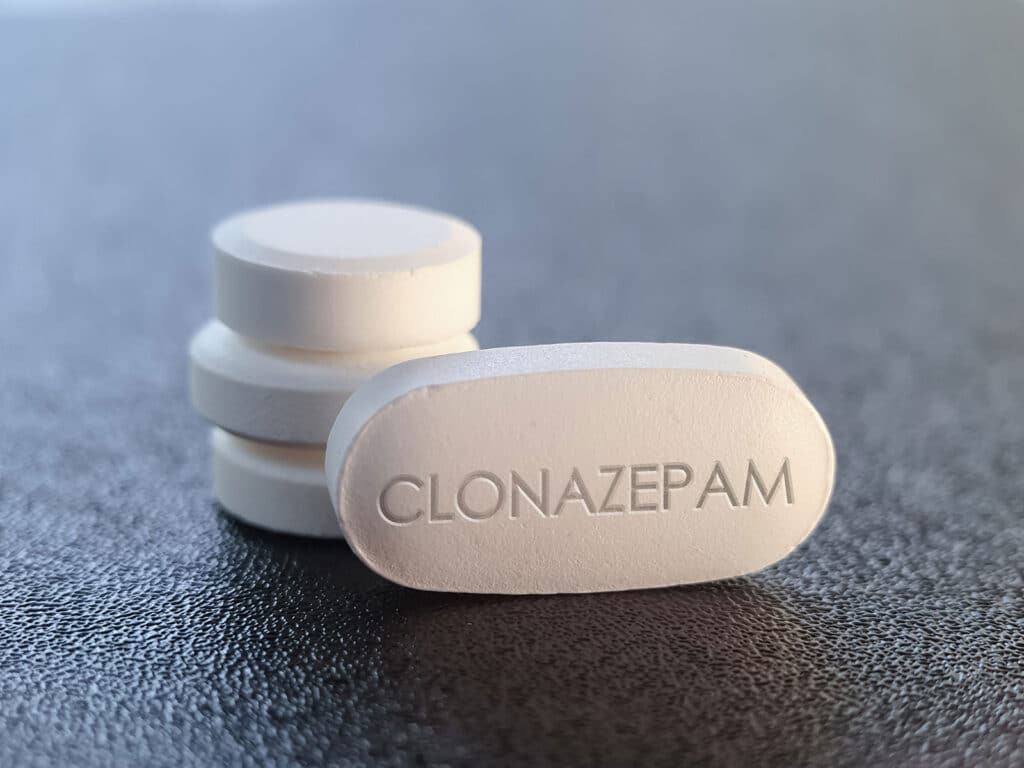Klonopin (also known for being the brand name for Clonazepam) is a medication that belongs to a broader class of drugs known as benzodiazepines, and it’s typically employed to treat and prevent seizures or help those struggling with panic disorder feel more at ease and get a better grip on their anxiety. But while this medication has its uses and may be beneficial to some degree, the potential for addiction and abuse is extremely high. Those prescribed the drug should be taking the drug for a short period of time and at the lowest dose they require to receive the benefits offered, but this may still not be enough to prevent addiction. This is especially true for those who have been introduced to Klonopin outside of a medical setting or those who have been taking Klonopin for longer periods of time.
If you’re struggling with Klonopin addiction, the good news is that there are resources available to help you take the next steps toward breaking free, taking control of your health, and improving your outlook and quality of life. Like all change, the first step begins with awareness. In this guide, we’ll take a closer look at Klonopin addiction and its signs, what Klonopin withdrawal looks like, and what you need to do to start addressing it in your own life.

Table of Contents
Understanding Klonopin Addiction
Benzodiazepines are a class of drugs that are already associated with addiction. However, while other drugs in this category can be addictive, Klonopin carries the most risk. Why? Klonopin is a drug that acts on the GABA receptors, making users feel calm and relaxed, euphoric, and sedated, which can be a feeling that many enjoy. Unlike other drugs, Klonopin not only reaches the system within an hour of taking it but has a half-life of around 18 to 39 hours, staying in the body for days.
While Klonopin is a drug that some people might seek out, it’s important to underline the fact that legitimate use can lead to addiction if not prescribed properly. Klonopin’s ability to reach the system rapidly and its long-lasting effects means that the body develops a tolerance to the drug faster than other drugs. This will require you to need more faster, which poses a risk of physical dependence, drug abuse, and even overdose if you receive more from a doctor or seek out drugs from other sources.
Because of Klonopin’s unique effects, the signs and symptoms of Klonopin addiction can be quite noticeable. Some of the short-term side effects may resemble alcohol use (especially when Klonopin is being taken with alcohol), including confusion, drowsiness, increased heart rate, and impaired judgment, impaired motor skills, slurred speech, falling down or fainting, excessive sleeping, and a sensitivity to light and sound. Those with a Clonazepam addiction may also be engaging in strange behaviors due to the altered mental state or due to auditory and visual hallucinations, but they’ll still be focused on securing Klonopin and battling cravings, regardless of whether it affects their professional or personal lives.
Klonopin’s effects aren’t too well-known when taken for longer periods due to its recommended use of only a few weeks. That being said, some long-term use effects of Klonopin that could develop in those with a Klonopin addiction include severe issues with cognitive ability, an increased potential for physical injury caused by drug use and increasing muscle weakness, and a gradually increasing risk of overdose. Getting the treatment you deserve as soon as possible is crucial to ensuring Klonopin addiction isn’t allowed to progress.

The Impact of Klonopin Addiction in Illinois
With everything we know about Klonopin use and addiction, is substance abuse still that prevalent in Illinois? Unfortunately, while there are statistics available for Klonopin’s misuse across the U.S., there’s not much to go on. That being said, there are a few statistics that could indicate how much of a problem it could be. The Illinois Criminal Justice Information Authority revealed that, in 2014, 14 percent of high school students in Illinois and 11 percent of students in Chicago had tried prescription drugs, which may have included Klonopin. Additionally, there were around 1,789 overdose deaths in 2021 in Illinois due to a mix of opioids in other substances, for which 227 fatalities involved opioids and benzodiazepines.
As with most drugs, the impact of Klonopin addiction has adverse effects. Beyond the home, those addicted to high doses of Klonopin may affect the greater community by reducing economic activity and causing strife within the community due to strange behaviors affecting neighbors or even dangerous activity like driving under the influence.
Available Treatment Options for Klonopin Addiction in Illinois
There are a host of treatment options to help you overcome Klonopin addiction and its withdrawal symptoms in Illinois. These include:
- Detoxification: The detox process is the most critical in Klonopin treatment due to how quickly a tolerance is built and how high the doses can be with long-term abuse. Detoxification resources include inpatient detoxification, where you stay at a facility to receive the healthcare you need with round-the-clock care, and outpatient treatment, where you travel to a facility daily if you’re unable to step away from work, for example.
- Rehabilitation Programs: Rehabilitation programs abound in Illinois and include inpatient programs and outpatient programs as well. Inpatient programs are valuable for those with serious addictions who need a committed level of care until they’ve reached a point where they’re able to manage their addiction with greater confidence by themselves. Meanwhile, outpatient programs can play a valuable role for those who are unable to miss school or work and may only have a minor issue with Klonopin abuse. It’s also a valuable resource as one transitions out of inpatient care so they can get the ongoing support they need in their journey.
- Medication Assisted Treatment (MAT): Putting an end to Klonopin addiction isn’t as simple as stopping the medication. MAT gives you access to medications that aid you in the medical detox process and reduce the use of Klonopin in the future.
Therapy and Counseling: Therapy and counseling are among the most valuable tools at your disposal for handling drug addiction. Cognitive behavioral therapy works to help you understand the underlying issues leading to addiction so that you can better deal with those and prevent relapse in the future. Other therapeutic tools like group therapy and family support make it so that you can heal connections and connect with others who understand your situation, giving you a greater sense of community as you emerge from treatment to return back to your life.
Choosing the Right Treatment Facility in Illinois
Much like no one counselor is going to be the perfect fit for you, you need to carefully consider which treatment facility you wish to go to as it can play a tremendous role in how effectively you’re treated and what your future looks like. Some of the driving factors that will play a role in your choice include where your facility is located, what types of programs they offer, whether or not the staff is qualified to do the jobs that are listed, and whether or not the facility is accredited.

Take great care to look over every facility and treatment program in your area to evaluate whether it meets your expectations. You can conduct deeper research to evaluate the efficacy of a treatment program by seeing what past patients had to say (especially those who are going through something similar to you), inspecting the depth of the program listed on the website (looking deeper into the details to understand how it works and why it might be effective), or even reaching out to the facility to learn more as you get ready to embark on your rehabilitation journey.
Long-Term Recovery and Support
Going to rehab is an excellent first step toward addressing addictions and building a drug-free future for yourself. That being said, rehab is not the only step. Challenges will still exist after rehab, which is why it’s important to focus on long-term recovery and support so that you can continue to thrive once you leave an inpatient or outpatient program.
Some of the best tools to leverage in your long-term treatment plan is to put together a relapse prevention plan. It can include going to support groups like Narcotics Anonymous or SMART Recovery to continue to talk about your feelings with those who understand your unique challenges, finding a therapist you can talk to and simultaneously establishing a support network of friends and family you know you can turn to when you need help, and surrounding yourself with or looking to those who have overcome Klonopin and continue to succeed each and every day. What you do moving forward as aftercare is just as important as your choice to go to rehab!Klonopin addiction can happen rapidly, and because of its wide range of serious physical and mental effects, it’s important to address it and treat it quickly. If you or a loved one are struggling with a Klonopin addiction, Illinois Recovery Center is here to give you the support you need to overcome your addiction and take control of your life. Learn more about our treatment center and programs and contact us to start your rehabilitation journey today.



